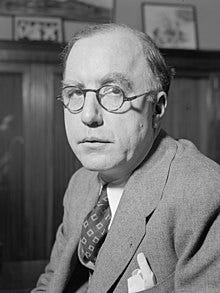Answers to Trivia Questions on Secretaries of Labor and Supreme Court Justices
How'd you do?
Answers to my Labor Day weekend trivia questions:
This future Secretary of Labor argued Supreme Court cases as an assistant to Solicitor General Robert Bork.
Robert Reich studied antitrust under Bork at Yale and worked for him in the SG’s office from 1974 to 1976.
This future Secretary of Labor resided with a future Supreme Court justice for more than a year.
Eugene Scalia was in his father’s household for many years.
This future Secretary of Labor was a law clerk to a future Supreme Court justice.
Alexander Acosta clerked for then-Third Circuit judge Samuel Alito from 1994 to 1995.
This Secretary of Labor became a Supreme Court justice.
John F. Kennedy appointed Arthur Goldberg to be Secretary of Labor in 1961 and a Supreme Court justice in 1962. Goldberg served on the Court for less than three years, as LBJ persuaded him to become U.S. ambassador to the United Nations in 1965.
This Secretary of Labor was previously both a United States senator—for five Supreme Court confirmations—and a federal judge.
Lewis B. Schwellenbach (whom I acknowledge I had never heard of) was a U.S. Senator for the state of Washington from 1935 to 1940. He voted yea on the roll-call votes on FDR’s nominations of Hugo Black (confirmed 63-16) in 1937 and of William O. Douglas (confirmed 62-4) in 1939. The voice votes on FDR’s nominations of Stanley Reed, Felix Frankfurter, and Frank Murphy also occurred during his Senate service.
In May 1940, FDR nominated Schwellenbach to a district-court seat in the Eastern District of Washington, and the Senate confirmed him that same day. But he waited until November to accept his commission. (His Wikipedia bio indicates that he served both as a senator and as a federal judge for a month or so, but I’m guessing that’s mistaken.)
Truman appointed him as Secretary of Labor in June 1945.
This Secretary of Labor was later a United States senator and voted on two Supreme Court nominations.
Elizabeth Dole was Secretary of Labor for two years under President George H.W. Bush. As a U.S. Senator from North Carolina from 2003 to 2009, she voted for George W. Bush’s nominations of John Roberts and Samuel Alito.
In a letter to the president, this future Supreme Court justice praised the president’s selection of this Secretary of Labor and described her as “not only the best possible woman for your Cabinet but the best man for the job.”
Felix Frankfurter to FDR regarding Frances Perkins. (See letter dated February 23, 1933 at page 5 here.) Perkins was Secretary of Labor for the entirety of FDR’s presidency, from his Inauguration Day in 1933 through his death in April 1945.
As a law professor at Northwestern, future Secretary of Labor W. Willard Wirtz taught this future Supreme Court justice and successfully recommended him for a Supreme Court clerkship.
Wirtz recommended John Paul Stevens to Justice Wiley Rutledge. Stevens graduated from Northwestern law school in 1947 and clerked for Rutledge during the Court’s 1947-48 term.




